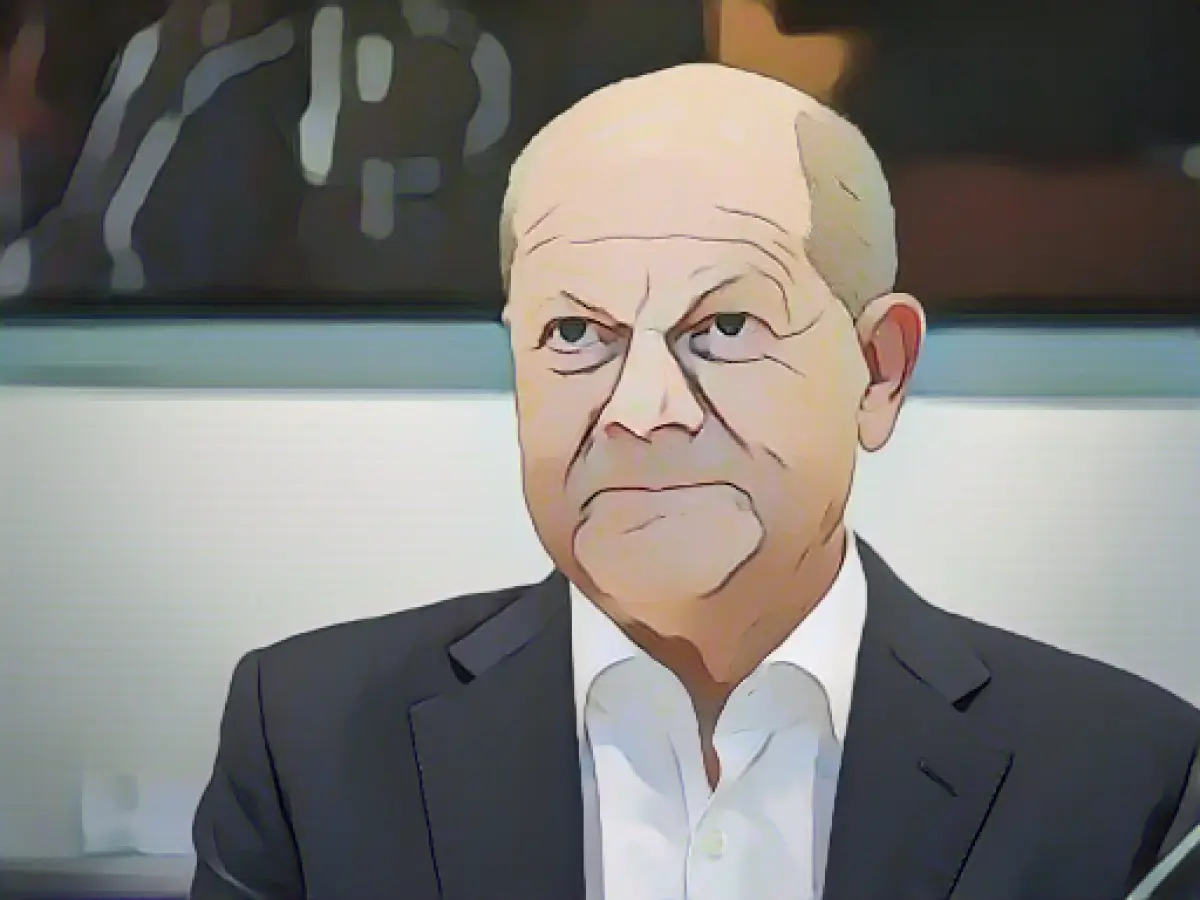"Loud, critical" - Are the Jusos becoming a problem for Scholz?
You haven't heard much from the Jusos in recent years - until a few weeks ago. Then they found clear words - and they were directed at their comrade, Chancellor Olaf Scholz, of all people. He had held out the prospect of deportations "on a grand scale" in Der Spiegel.
The Jusos were furious: "A demand straight out of the vocabulary of the right-wing mob," posted the SPD youth on X (formerly Twitter). "I could puke at this quote," wrote Juso vice-president Philipp Türmer.
This is the first time since Scholz was chosen as their candidate for chancellor that the Jusos, and thus parts of the SPD in general, have been so vocal in their attack on the chancellor. Could this new self-image become a problem for Scholz two years before the Bundestag elections - similar to what former Juso leader Kevin Kühnert once did with his "No GroKo" campaign?
The candidates for the Juso chairmanship, which will be elected today in Braunschweig, suggest that this is the case. Sarah Mohamed, 31, from North Rhine-Westphalia and Philipp Türmer, 27, from Hesse are not afraid to criticize the Chancellor. In the newspapers of the Funke media group, they announced a sharp course against Scholz. The Jusos must push the SPD and the Chancellor forward, said Mohamed. Türmer emphasized: "I think it is urgently necessary that we Jusos accompany the chancellor and his line much more critically from now on."
Jusos as a left-wing corrective
Mohamed and Türmer are "loud, critical and left-wing", says political scientist Anna-Sophie Heinze to the German Press Agency. Heinze is the spokesperson for the party research working group of the German Political Science Association (DVPW) and an academic councillor at the University of Trier. In terms of content, both pursued the same goal: to position the Jusos as a clearly left-wing corrective in the SPD. "What makes them different is the way to get there," says Heinze.
Mohamed calls on the Jusos to take to the streets again. They should network more with trade unions, the climate movement, anti-racist and feminist groups. She told the "taz" newspaper in an interview: "I'm definitely not afraid of confrontation." Türmer, a Juso veteran, wants to raise the question of distribution. He believes that this requires independent Jusos who seek more conflict with the party. "If I have the impression that the chancellor is not pursuing social democratic policies, then I will also distance myself from him."
Change of course
This is a very different course to that of Jessica Rosenthal, the previous Juso leader. She stood for a much calmer leadership style than her predecessor Kühnert, for example. Rosenthal entered the Bundestag in 2021, but continued to lead the youth organization. "In such a constellation, it is much more difficult to voice criticism than without a mandate," says Heinze.
There are people in the SPD who say Kühnert's footsteps were too big. A clear line was missing under Rosenthal. She missed the chance to organize the "49ers" in the Bundestag. 49 of the 206 SPD MPs were under the age of 35 at the time of the parliamentary elections - in other words, Jusos. But the effect of the young savages fizzled out and the supposed left-wing revolution in parliament failed to materialize.
Rosenthal retired as Juso chairwoman because she was having a child. She is satisfied with her performance at the head of the SPD youth organization: "We have made it clear that we are not satisfied with others deciding our future. We want to have a say," she says. The demands of the Jusos were also reflected in the coalition agreement: the abolition of Paragraph 219a, the legalization of cannabis, the introduction of a citizen's income and the apprenticeship guarantee.
Controversial issue of migration policy
Now, however, the Young Socialists are not only facing a change of leadership, but also a change of direction. "I assume that there will be more ruckus from the Jusos again, at the latest at the party conference in December," says Heinze.
The biggest points of contention are likely to be migration and asylum policy as well as how to deal with the AfD's strong poll ratings. "The Jusos have already made it clear that they do not agree with the Federal Chancellor's call for more deportations." There are clear differences in the programs of the Jusos and the SPD - so that friction between the youth and the parent party is foreseeable.
No rapprochement in sight
Chancellor Olaf Scholz is not facing up to this confrontation for the time being. For the second time in a row, he is skipping the Juso Federal Congress - the Chancellor declined the invitation to Braunschweig for scheduling reasons. The fact that he is not coming also speaks "for the conflictual relationship between the Jusos and the SPD", says researcher Heinze.
Many Jusos are not enthusiastic. But Scholz will feel the new wind, says Türmer. He is certain "that the messages and demands of the Jusos from this congress will be so loud that he will hear them - no matter where he is".
- Despite skipping the Juso Federal Congress due to scheduling reasons, Chancellor Olaf Scholz may still feel the impact of the criticisms and demands from the Juso candidates for the chairmanship, Sarah Mohamed and Philipp Türmer, who have advocated for a more critical stance towards Scholz's policies and have announced a sharper course against him.
- The controversy surrounding migration and asylum policy, as well as the strong poll ratings of the AfD, are likely to be major points of contention between the Jusos and the SPD, with the Jusos expressing disagreement with Scholz's calls for more deportations and raising concerns about the potential for friction between the youth and parent party.
Source: www.dpa.com








